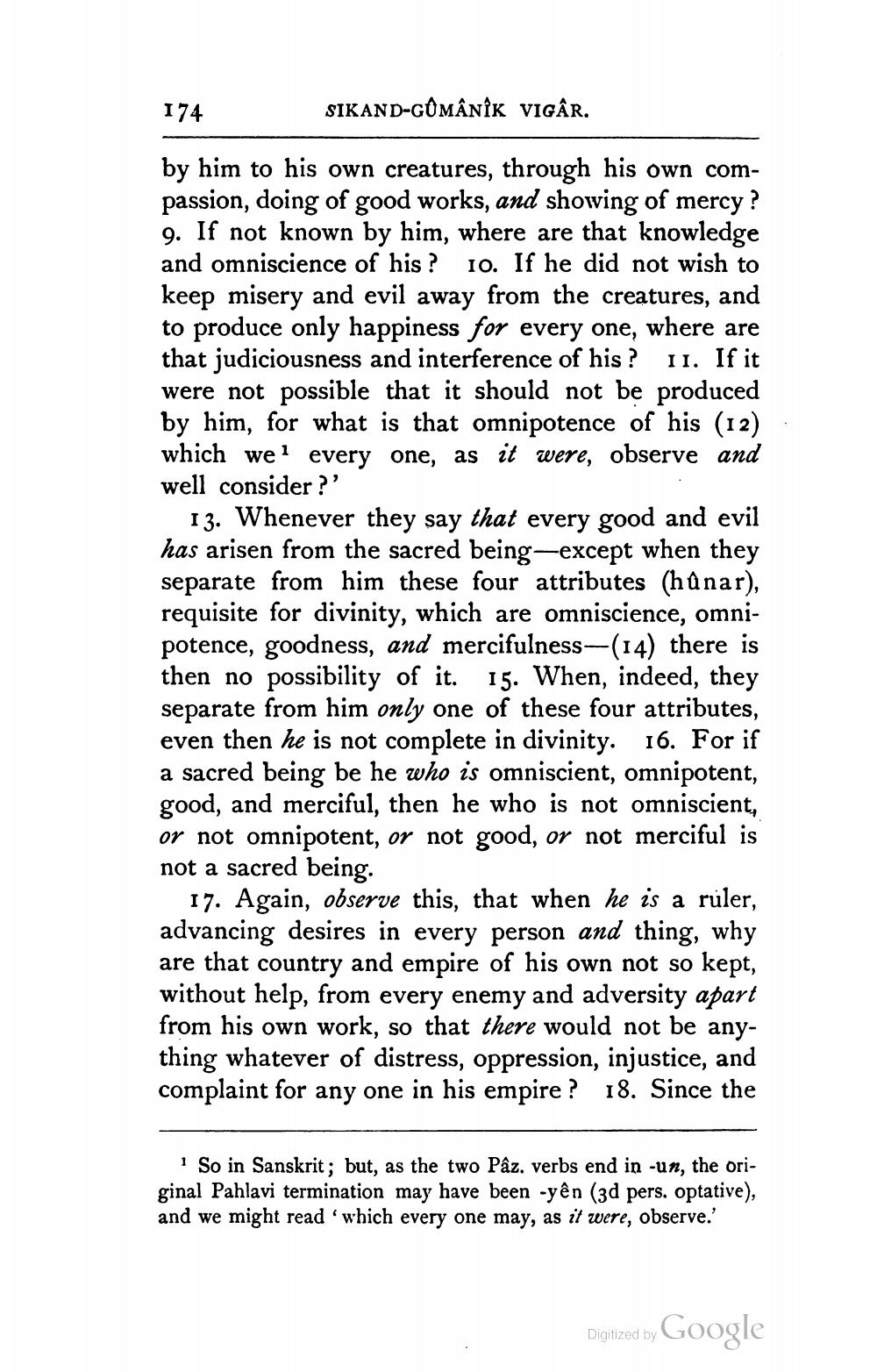________________
174
SIKAND-GOMÂNIK VIGAR.
by him to his own creatures, through his own compassion, doing of good works, and showing of mercy ? 9. If not known by him, where are that knowledge and omniscience of his ? 10. If he did not wish to keep misery and evil away from the creatures, and to produce only happiness for every one, where are that judiciousness and interference of his ? 11. If it were not possible that it should not be produced by him, for what is that omnipotence of his (12) which wel every one, as it were, observe and well consider?'
13. Whenever they say that every good and evil has arisen from the sacred being-except when they separate from him these four attributes (hûnar), requisite for divinity, which are omniscience, omnipotence, goodness, and mercifulness—(14) there is then no possibility of it. 15. When, indeed, they separate from him only one of these four attributes, even then he is not complete in divinity. 16. For if a sacred being be he who is omniscient, omnipotent, good, and merciful, then he who is not omniscient, or not omnipotent, or not good, or not merciful is not a sacred being.
17. Again, observe this, that when he is a ruler, advancing desires in every person and thing, why are that country and empire of his own not so kept, without help, from every enemy and adversity apart from his own work, so that there would not be anything whatever of distress, oppression, injustice, and complaint for any one in his empire ? 18. Since the
So in Sanskrit ; but, as the two Pâz. verbs end in -un, the original Pahlavi termination may have been -yên (3d pers. optative), and we might read 'which every one may, as it were, observe.'
Digitized by Google




